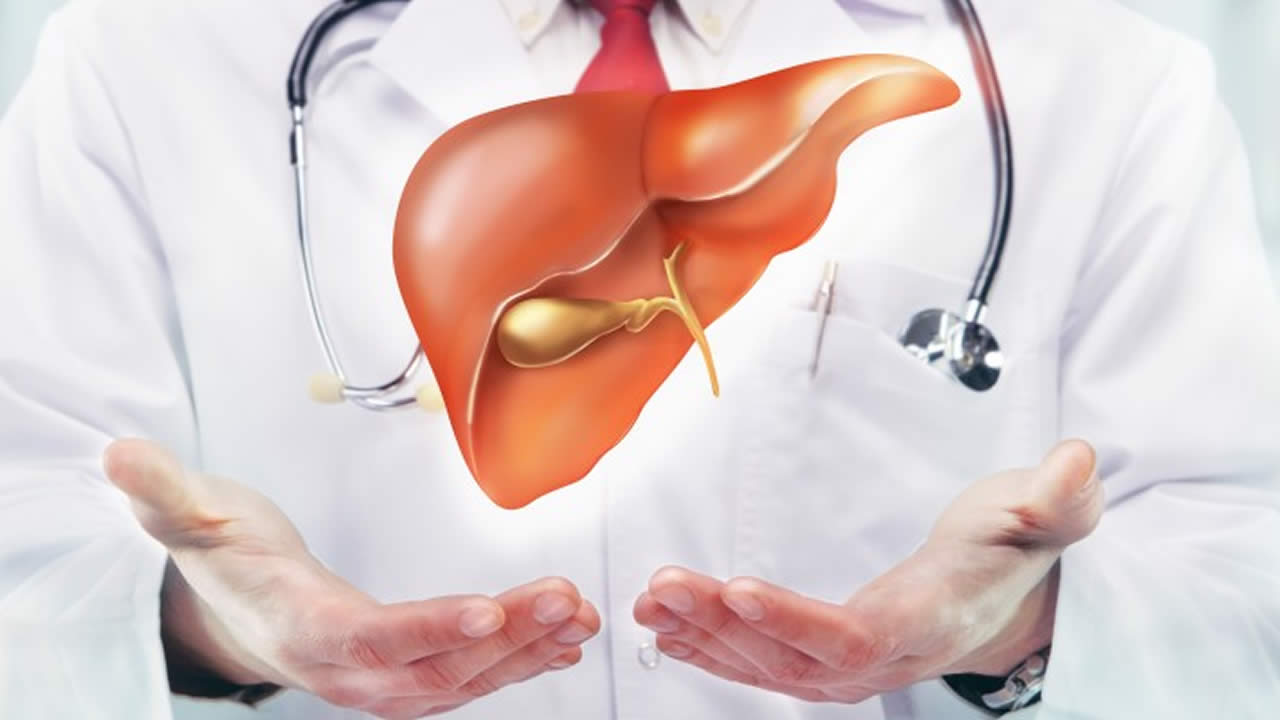
Non-alcoholic steatohepatitis (NASH) is set to be one of the biggest causes of liver transplants by 2020 in the USA. This silent disease is estimated to affect around 16 million people in the US alone. NASH is considered to be a relatively new disease, which is strongly linked to our lifestyle. Mauritius is no exception. Dr Ounisha Mungur and Dr Regine Rouzier from Cap Research provide an insight of this disease.
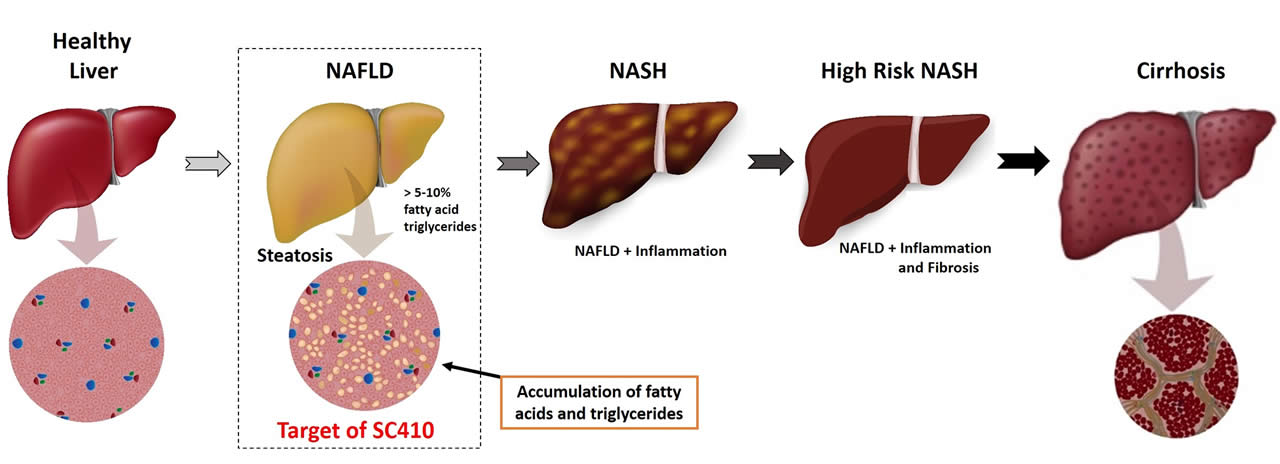
NASH is a chronic yet silent disease meaning that patients live with it for several years without experiencing any symptoms and most of them remain unaware of their liver condition.

Dr Mungur explains that NASH is a liver disease coming from the family of fatty liver diseases. She reveals that the first stage is steatosis whereby there is accumulation of fat leading to steatohepatitis, which is accumulation of fat and liver inflammation. “Usually, sugar is transformed into fats by the liver and stored for future use. But when sugar and fat level are too high, the liver stores fat in excess. Extra fat builds up in the liver, resulting in a type of liver cell degeneration called ballooning. In response to ballooning and inflammation, scar tissue develops in the liver. Now, if nothing is done on time, the situation deteriorates: Ballooning and inflammation cause the emergence of NASH and are very likely driving the accumulation of scar tissue, which is at the origin of Fibrosis, a condition where the liver does not function properly. Fibrosis evolution can be reversed. But if the fibrosis is not stopped and it continues to spread, then the patient reaches the stage of cirrhosis, which is irreversible.”
Currently, Cap Research has plunged itself in the study of NASH in Mauritius, and the results show that being a developing country with so much potential, Mauritius has the right to take advantage of new molecules and drugs for treatment, seeing the high prevalence of diabetes in the country.
The situation in Mauritius
In Mauritius, treatment for NASH is not available. Dr Rouzier and Dr Mungur emphasise that currently, there is no statistics available to know how many people suffer from NASH and the one of the reasons provided is that diagnosis is difficult to be done. Both doctors have observed that since “the number of diabetic people in Mauritius and the rate of obesity are very high, we can deduce that there are lots of people suffering from it but who are unaware of having this disease.” They state that many people have developed liver cancer due to this disease and some have even lost their lives. They trust that it is high time for Mauritians to be more conscious about this health issue.
Statistics in Mauritius

Currently, there is no statistics concerning NASH. However, there are certain figures from the Annual Report 2017 of the Ministry of Health which shows that there are patients suffering from liver diseases and some of them have even passed away. For example, statistics show that in 2017, 160 people died from Cirrhosis of the liver, liver abscess and chronic liver disease. In private health institutions, around 329 cases of liver diseases were treated. According to this report, liver diseases represent the 9th cause of death. In the same year, 2.1% new liver cancer cases were detected. Concerning deaths due to liver pathologies, 132 males and 28 females lost their lives. Most of the deaths occurred in the age range of 45-59 years old.
Symptoms and diagnosis
Unfortunately, as highlighted by Dr Regine Rouzier, NASH is an asymptomatic disease since patients often have no symptoms until advanced stages. “There is no sign to indicate if you are suffering from NASH. A patient suffers silently from it until the last stage. The patient will continue to live quietly but the liver will deteriorate in the meantime. When the patient is in the final stage which is cirrhosis, he/she can experience some symptoms like loss of appetite, fatigue, nausea, jaundice, ascites, bruising easily and swelling in the legs. But by then, it is too late.”
Dr Mungur recalls that usually, NASH is incidentally diagnosed by a blood test of liver enzymes. “Whenever there is a high level of liver enzymes, there is a suspicion of fatty liver disease. Then there is the need of more in-depth analyses, for example a liver biopsy, which is mandatory to confirm the diagnosis of NASH. At Cap Research, we have a Fibroscan® which is a non-invasive technique to detect NASH.”
Risk factors
According to the two doctors, the liver is essential for our body but still, some people ignore its usefulness. “It is unfortunate that we undermine the role of the liver as compared to the heart. We ignore the fact that the liver is at the centre of all metabolic processes. When a patient is affected by NASH, the liver is damaged and inflamed causing major risks to the patient.”
Dr Regine Rouzier underlines that NASH is the consequence of a change in our lifestyle. “Today, people are more sedentary with more fat, sugar intake and fast food. People tend to eat without moderation and do not perform physical exercise. Diabetic patients aged above 45 and who have had diabetes for more than 10 years are more prone to have Nash.”
Dr Mungur adds that many Mauritians are health conscious but they do not have enough time to eat healthy and to be physically active. “There is no doubt that we eat more than we spend, as we travel mostly by cars. There is also the cultural and traditional side where eating habits are unhealthy. For instance, here we serve oily cakes which taste good but has negative effects on the body” says Dr Rouzier.
Treatment
Both doctors maintain that NASH is reversible and if a patient is diagnosed on time, he/she has the chance to allow the liver to regenerate and be cured. “With the right treatment, we can stop the evolution of this disease and new drugs are being developed to reverse the situation.”
Similarly, Dr Rouzier adds that if a person is around 50-years-old and has NASH but does not do anything about it, by the age of 60, the person will be no more. “The results are catastrophic if NASH is not treated. Nevertheless, if the same person gets to learn about his health status on time and follows a good treatment, then he/she can reverse the situation. Thus, his/her life expectancy will be the same as a normal person.”
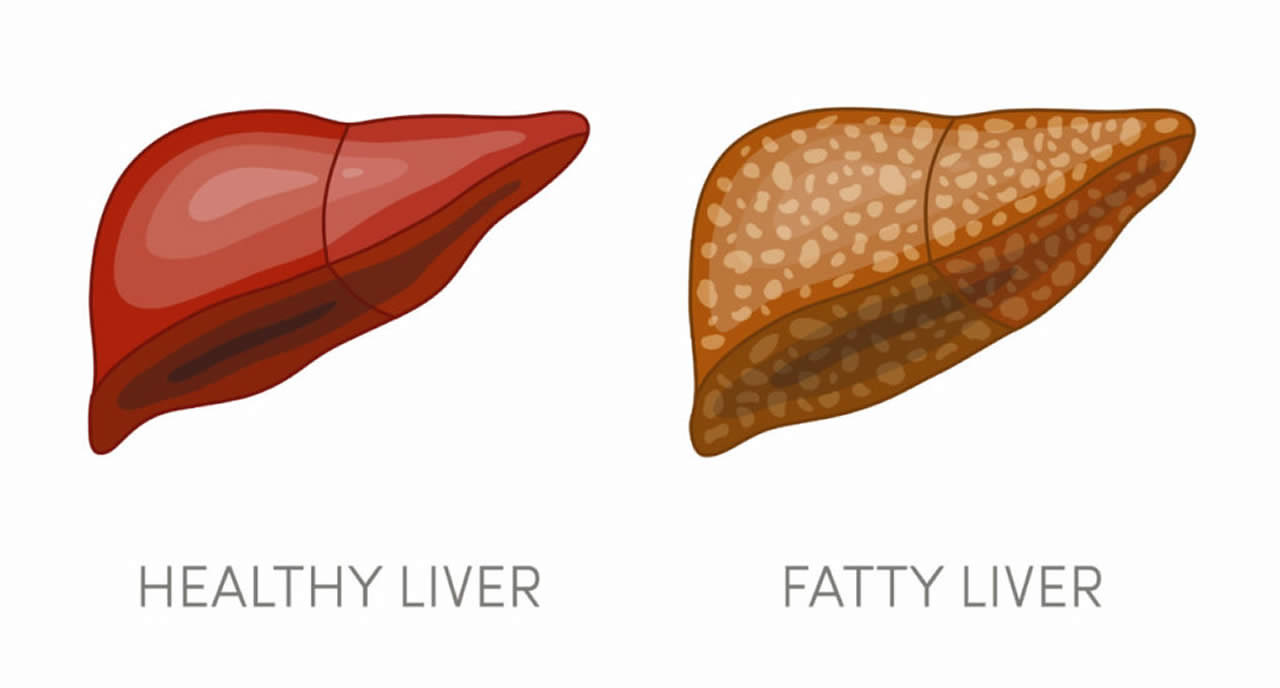
Preventive measures
If you are overweight or obese, the more weight you lose, the better – even losing a little can have a positive impact. A study in the August 2016 JAMA Internal Medicine found that people, who lost just 3 to 6% of their body weight, reduced their liver fat levels by 35 to 40%. The conclusion is that vigorous and moderate physical exercises are both equally effective in reducing intrahepatic triglyceride content and that the effect appeared to be largely mediated by weight loss.
The two doctors also favor the same measures, as mentioned above. Dr Rouzier believes that it is better to resort to preventive measures. “As you know, it is a major problem, therefore the best is to take the necessary precautions. It is important to check if your liver is in good health or if it has some anomalies.”
Dr Mungur, on her part, argues that despite the fact that people above 45 are more likely to get NASH, the younger generation should be concerned by it as well. “As from a young age, it is important to keep track of your weight and take precautions to avoid becoming diabetic. If you do not have the risk factors, the probability of developing NASH will reduce.”
Both doctors advise diabetic, obese and hypertensive patients to monitor their health status. “It is essential to have a complete blood test once a year. Diabetic patients should check their liver enzymes along with glucose testing. People diagnosed with this disease should be motivated to adopt a good diet, do sports and follow an appropriate treatment.”
Cap Research : Sensitising the population
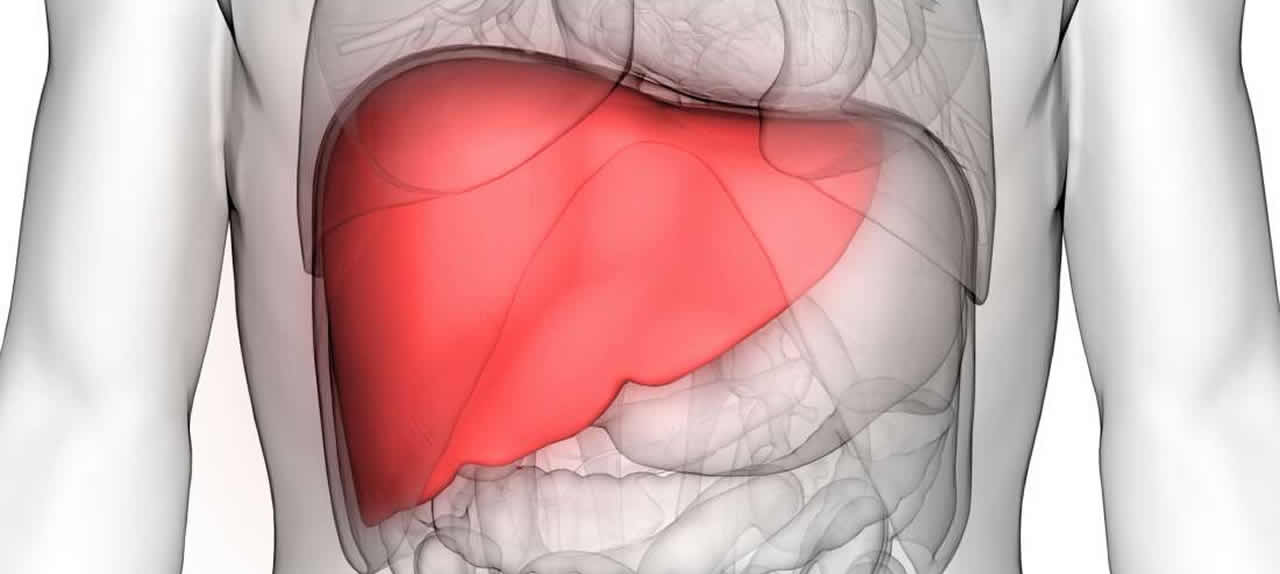
Currently, Cap Research is sensitising the population about this dreadful disease. “We are doing screening campaigns whereby a patient receives a diagnosis. Based on this, if there are high suspicious cases, we provide the patient with in-depth diagnosis, free of cost. The analyses are sent abroad for further testing. We also offer treatments which have shown their efficiency. Various patients following these treatments have shown a regression concerning NASH.
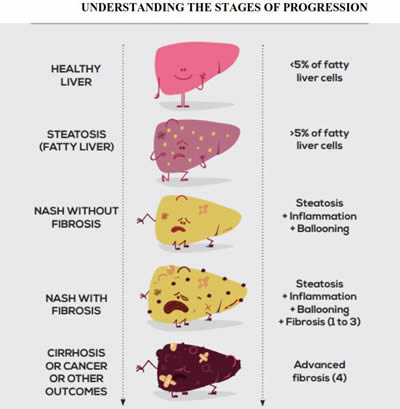
 J'aime
J'aime













